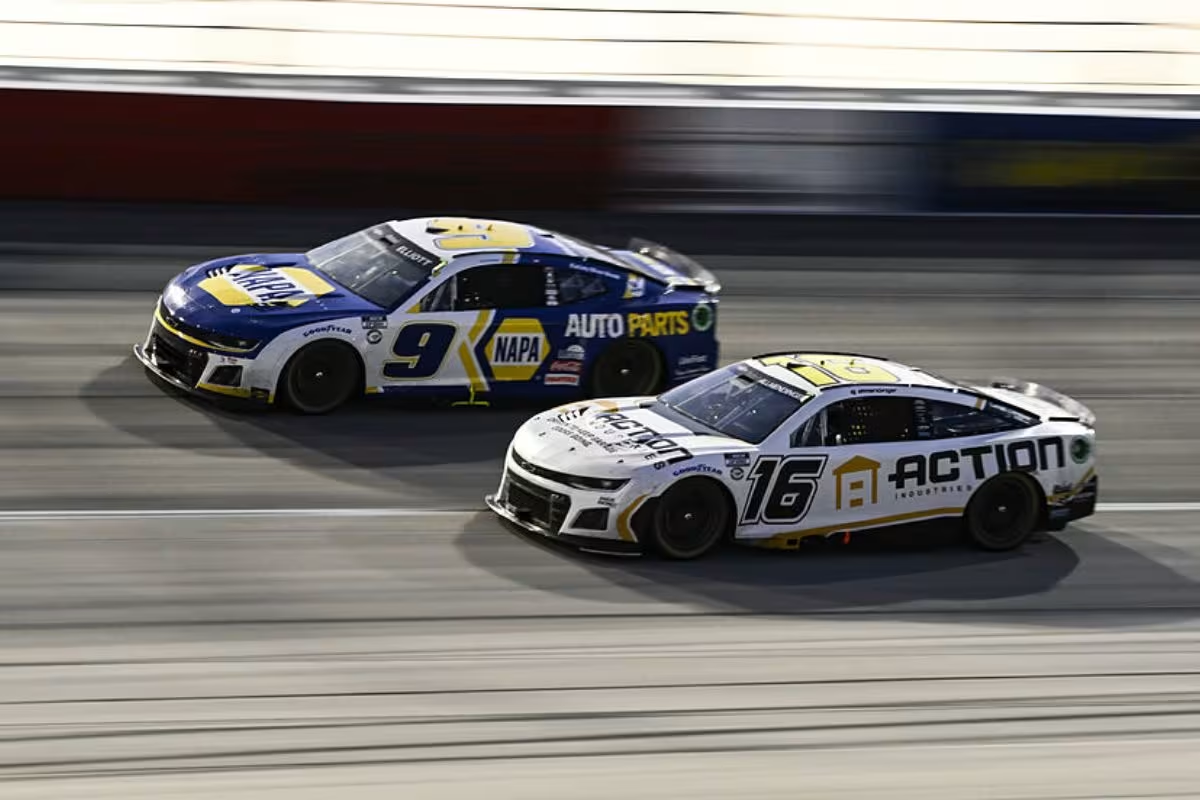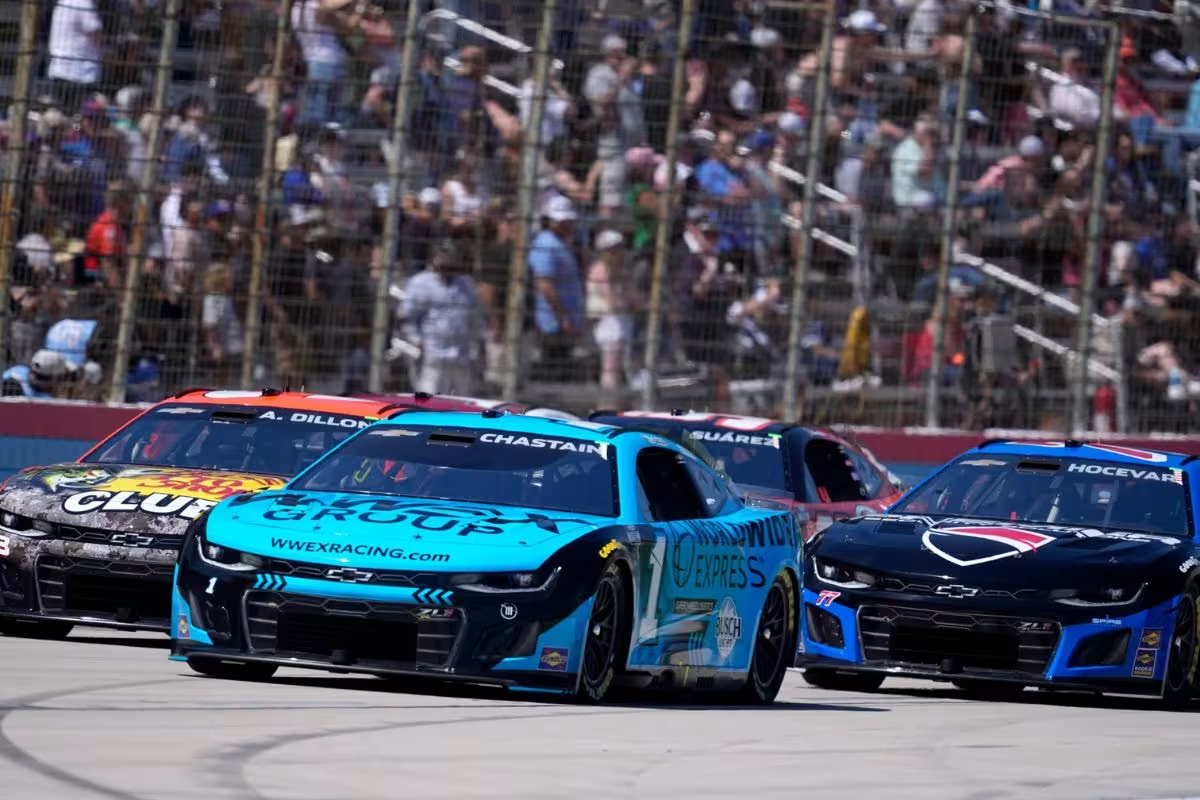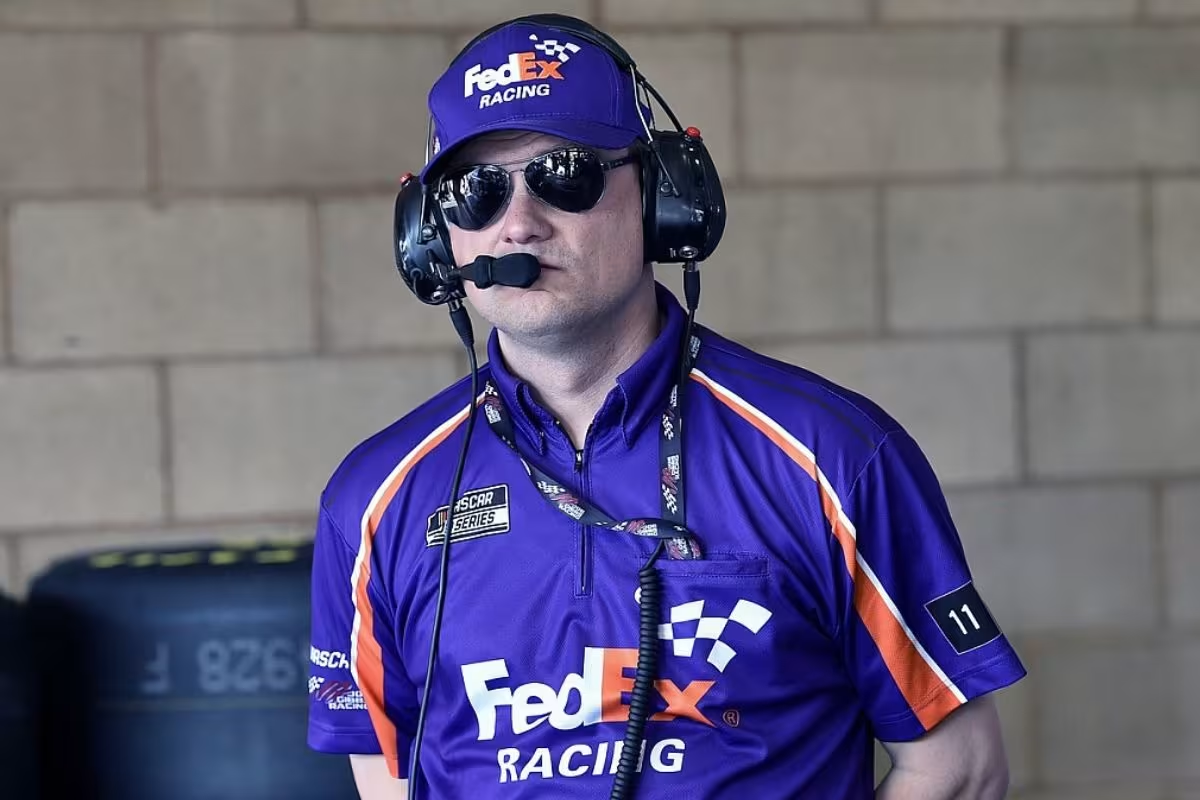Freddie Kraft Declares Superspeedway Racing a Mess: Freddie Kraft has stirred up conversations by claiming that superspeedway racing has lost its thrill, urging for quick fixes to bring back the excitement. He points to drivers’ focus on saving fuel, which leads to half-hearted racing and predictable two-by-two formations. This change has disappointed both fans and drivers alike. Kraft’s frustrations echo those of others in the industry who are also unhappy with the Next Gen cars.
Key Highlights
- Freddie Kraft criticizes NASCAR’s reliance on fuel-saving tactics, leading to drivers frequently operating at half throttle during races.
- The recent Talladega race exemplified fans’ and drivers’ frustrations with the current state of superspeedway racing.
- Current racing dynamics often devolve into two-by-two formations, reducing excitement and competitive intensity despite the visual appeal of four-wide racing.
- Notable drivers, including Denny Hamlin, share concerns that the Next Gen cars diminish focus on driver skill and strategy.
- Kraft calls for immediate innovation from stakeholders to restore the competitive spirit and excitement of superspeedway racing.
Overview of the Podcast Discussion
In a recent episode of the Door Bumper Clear podcast, Freddie Kraft, spotter for Bubba Wallace, provided a crucial analysis of the current landscape of superspeedway racing in NASCAR. His insights reflect a growing concern among industry insiders regarding the direction of this highly competitive format.
Kraft highlighted the noteworthy changes in racing strategies, particularly the increasing reliance on fuel-saving tactics, which have become commonplace at superspeedways this season. During the discussion, Kraft pointed out that the necessity for drivers to run at half throttle to conserve fuel has diluted the core of racing itself.
This shift raises questions about the integrity and excitement of the sport, as drivers are forced to prioritize fuel management over aggressive competition. The recent playoff race at Talladega served as a prime example of this trend; many fans and participants criticized the comprehensive racing product, suggesting that the thrill of close-quarters racing has been overshadowed by tactical fuel conservation.
Kraft’s analysis emphasizes a crucial junction for NASCAR, where the balance between tactics and raw racing performance is increasingly tenuous. The reliance on fuel-saving measures not only alters race dynamics but also impacts the spectator experience, which is essential for maintaining fan engagement.
Kraft’s Critique of Current Racing Dynamics
While the visual spectacle of four-wide racing at Talladega may captivate audiences, Freddie Kraft’s critique reveals deeper concerns about the current dynamics of superspeedway racing. Kraft highlights that while such racing formations are visually impressive, they lack the competitive intensity that once characterized the sport. He notes that, despite the impressive sight, the ease with which drivers can maneuver in four-wide formation diminishes the thrill.
“I don’t know, aside from starting over from scratch with a different car, I don’t know what to do.” -Kraft
According to Kraft, the shift from full-throttle racing to a situation where drivers find themselves running at half throttle has diluted the excitement and strategy previously inherent to superspeedway events. Kraft’s observations are further emphasized by comments from notable drivers like Joey Logano and Denny Hamlin, who have expressed dissatisfaction with the current racing experience.
“My problem is, yeah sure, four-wide looks impressive and it is impressive, but even at half throttle, to be out there running around four-wide is not easy by any means. But it’s easier than when you were running wide open back in the day. But my only problem is, that’s great, we can make it look impressive when nobody really cares. But when we’re trying to race at the end of the race, it’s two-by-two, you can’t get a third lane going, and then there’s no excitement whatsoever. It’s just whoever can get their lane pushed at the right time riding down the backstretch entering turns three and four, that’s who’s going to win.” – Kraft
Logano’s assertion that he did not have fun and Hamlin’s claim that traditional racing wisdom has become irrelevant signal a considerable disconnect between driver experience and fan expectations. Kraft argues that this lack of competitiveness becomes glaringly apparent during critical race moments, where the racing devolves into two-by-two formations, stifling any hope of dynamic racing.
Instead of diverse lanes battling for position, the outcome hinges on who can effectively push their lane, reducing the sport to a mere tactical game rather than a test of skill and daring. Kraft’s call for change is clear: without a fundamental reevaluation of the current car dynamics, the excitement and authenticity of superspeedway racing may continue to wane.
TJ Majors’ Input on Racecar Dynamics
Highlighting the simplicity of contemporary racecar handling, TJ Majors pointed out that the ease with which drivers can navigate four-wide racing is a direct consequence of the current car dynamics. This observation raises critical questions about the balance between driver skill and vehicle performance in today’s NASCAR landscape. Majors argued that the current Cup Series cars are engineered to be user-friendly, allowing drivers to execute complex maneuvers with relative ease. In contrast, the Xfinity Series cars present a different challenge, suggesting that the disparity in handling characteristics notably influences racing dynamics.
As the ease of driving increases, so too does the necessity for a reevaluation of what constitutes competitive racing. If cars become overly simplistic, the nature of the sport—where driver skill and strategy should reign supreme—may be compromised, prompting an urgent need for reflection and potential reform within the racing community.
Chris Gabehart’s Disappointment in Next Gen Cars
Frequently expressing his concerns, Chris Gabehart, crew chief for Denny Hamlin, has voiced his disappointment regarding the impact of Next Gen cars on the racing landscape. Following the recent race at Talladega, Gabehart articulated a critical perspective that resonates with both Freddie Kraft’s critiques and the sentiments of his driver. His observations suggest that the Next Gen era has diminished the emphasis on driver skill and strategy, fundamentally altering the competitive dynamics of NASCAR.
Gabehart’s reflections highlight a troubling trend where the intricacies of race strategy and fuel management have been overshadowed by the operational limitations imposed by these new vehicles.
“With Gen 7 speedway racing, I just don’t see any greatness,” he lamented, emphasizing a lack of excitement and unpredictability in the racing. The crew chief pointed out that while there may be brief moments of contention, such as during pit cycles or restarts, the comprehensive experience devolves into a monotonous alignment of cars where drivers find themselves merely “stuck.”
“With Gen 7 speedway racing, I just don’t see any greatness. There’s qualifying up front, there’s a little bit of a tussle after an event. So a green flag falls off, or falls, you know, green flag comes out, or, you know, a pit cycle just completes, and there’s a little bit of flustering. But once they all get lined up, you’re just stuck.” – Gabehart
This raises critical questions about the future of NASCAR and the potential erosion of its traditional values. If the core of racing becomes diluted to mere positioning without the opportunity for individual talent to shine, the sport risks alienating purists who appreciate the nuances of driver skill.
News in Brief: Freddie Kraft Declares Superspeedway Racing a Mess
The discourse surrounding superspeedway racing highlights considerable concerns regarding current competitive dynamics and vehicle performance. Freddie Kraft’s critique emphasizes the perceived disorder within the sport, while insights from TJ Majors and Chris Gabehart further highlight the deficiencies of Next Gen cars.
Collectively, these perspectives advocate for immediate reforms to improve the racing experience and restore credibility to superspeedway events. A tactical reevaluation of the existing framework is crucial for nurturing a more competitive and engaging racing environment.
ALSO READ: Freddie Kraft’s Issues Stark Warning to Joey Logano: “Somebody Needs to Be Penalized”




